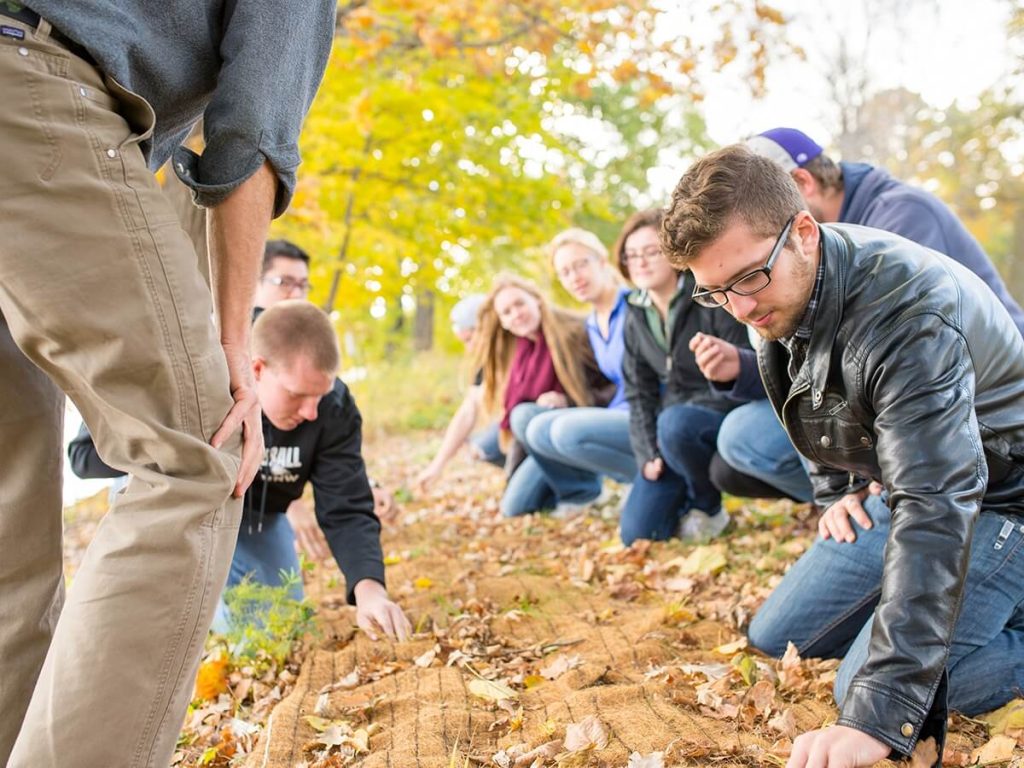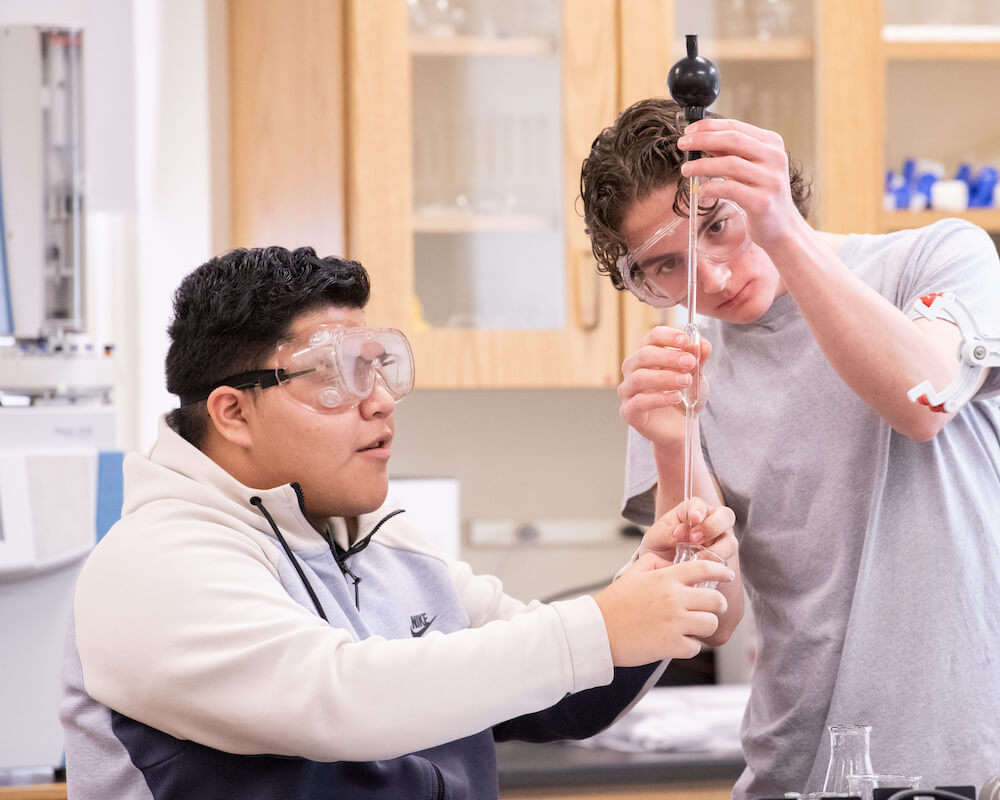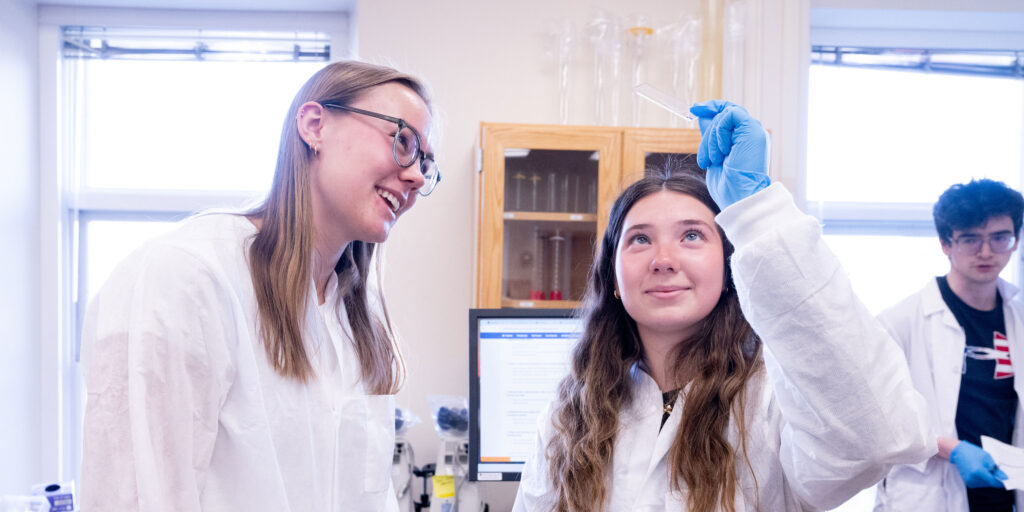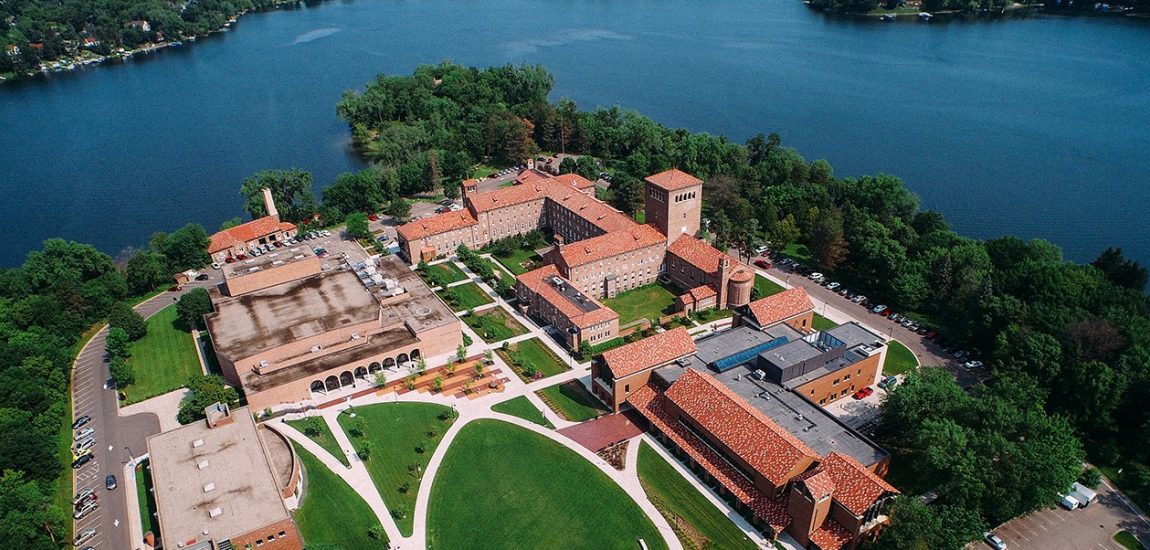Over the past year, Northwestern Biology students have had the opportunity to work with the Ramsey Conservation District to restore the shoreline of Lake Johanna. Projects like this frequently arise on Northwestern’s campus, presenting unique opportunities for Biology students.
Our Biology professors stay aware of local environmental opportunities, such as the restoration of Lake Johanna’s shoreline to give students a chance to see what environmental work looks like in the real world. Associate Professor of Biology Dr. Joel Light likes to “use the natural areas on campus as an outdoor laboratory for classes and for research projects.” In fact, his Field Biology course is taught almost exclusively in those natural areas on campus and in the community.
Each environmental project lets students perform new activities and develop their skills.
The Lake Johanna project called for students to install more than 40 species of native plants, erosion control products, and soil lifts to create a more stable shoreline. They also restored areas of emergent, transitional, and upland plant communities, which is expected to reduce phosphorus entering Lake Johanna by an estimated 10 pounds a year and soils and sediment by 12 tons a year.
“We teach students that God has given us the role of steward over the creation which ultimately belongs to Him.” – Dr. Joel Light, Associate Professor of Biology
“Having students get involved with this hands-on work allows students to carry out this call in a real way and exposes them to ways in which we can care for the creation. It makes the concepts that we cover in our classes more real for the students. They can directly see the fruits of their labor,” Light said.
Northwestern gives budding Biology students the chance to work with God’s creation using hands-on techniques.
“We are fortunate to be blessed with the natural resources we have being a suburban campus,” Light said. “Most other small schools in the area do not have direct access to this natural wealth on their very own campuses. These areas become very valuable to our programs and any of the community members in our campus community as well as the surrounding communities.”






